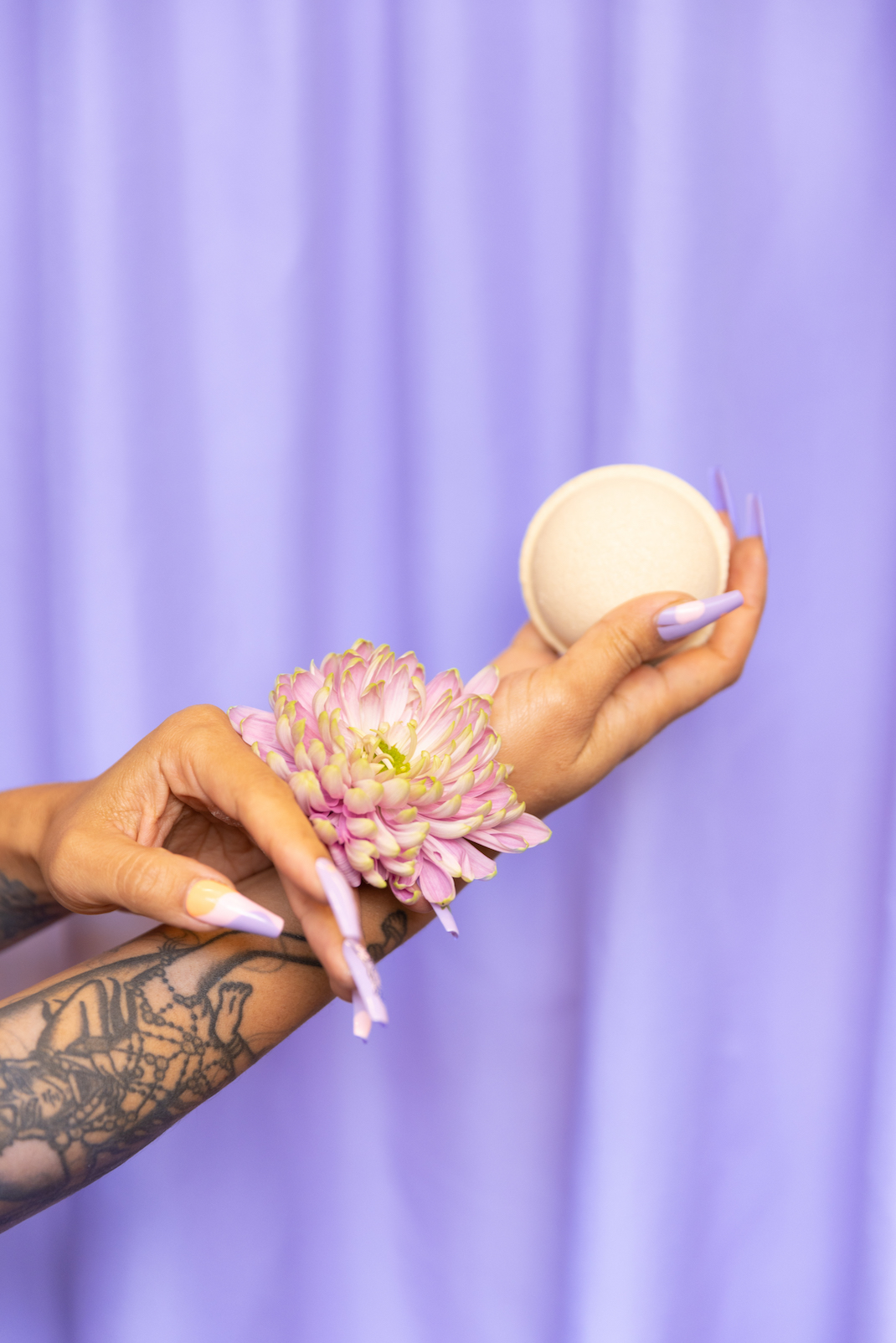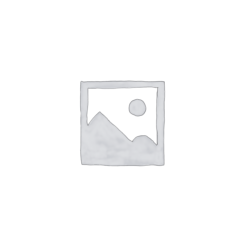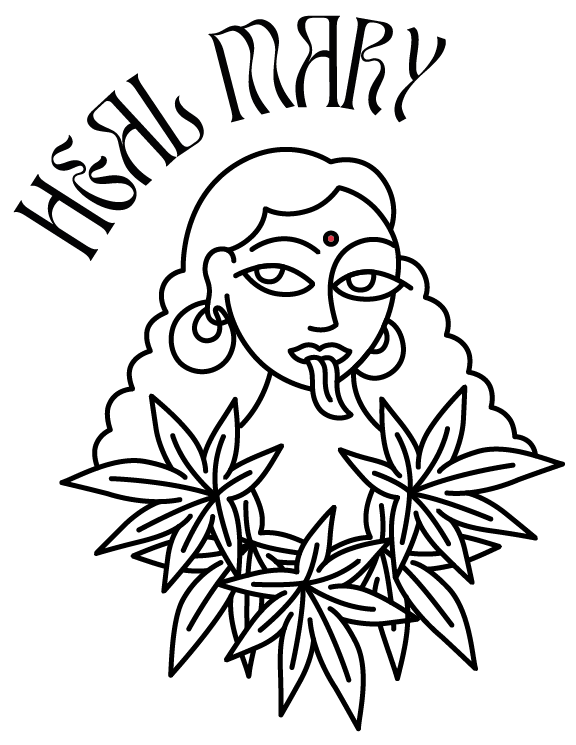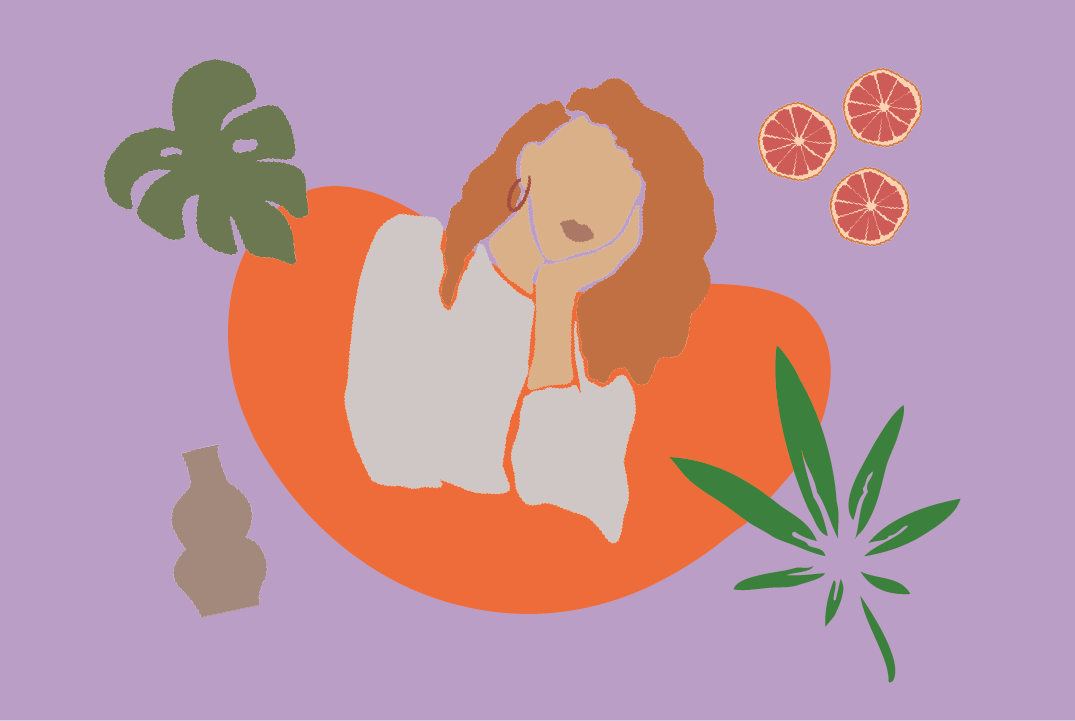Whether you're a CBD rookie or not, chances are you don't know exactly what CBD is yet. Don't worry, we explain it in detail below.
What does CBD mean?
CBD is an abbreviation of cannabidiol. The cannabis plant contains (113) compounds, and CBD is one of them. THC was the first cannabinoid to become world famous, because THC is the main component of cannabis as you find it at the coffee shop: weed. In recent years, more and more people have become familiar with CBD, but CBN, CBG, CBC and other cannabinoids are also under the microscope of many researchers.
How does CBD work in your body?
Every body is riddled with receptors or 'locks'. A key fits on those locks: cannabis. Because CBD is a plant-specific cannabis substance, all those receptors respond to both CBD and THC. However, there is an important difference in that interaction. Over time, your receptors 'get used' to weed, making you tolerant to it.
This is not the case with CBD. This substance only gives your own receptors a signal that your system has to work a little harder. If you use CBD or one of the other substances for a longer period of time, you will not become tolerant, but your own immune system works better and better. Some people therefore need less and less CBD, while daily cannabis users need an increasingly higher dose or stronger type of cannabis to achieve the same effect.
The endocannabinoid system
All these receptors together have been called the since their discovery in the 1990s endocannabinoid system. Our endocannabinoid system is named after the cannabis plant. Endo means 'internal' and refers to the fact that this system is the body's own. As mentioned before, CBD only triggers the receptors. Then your own body's own substances go to work. This way you can make your own substances that manage your mood, memory, digestion, hormones and stress levels.
The endocannabinoid system is not a silly network, but the largest system in your body. You have receptors in your central nervous system, heart and blood vessels, bones, lymphatic system, organs, for example your intestines, bladder, but also in the vagina, fallopian tubes and other body parts. You have more receptors for (endo)cannabinoids in your body than for anything else. Many researchers see this as the most important physiological system.
Where does CBD come from?
The cannabis plant has been around for millions of years, and seems to have existed even before humans came to Earth. The first cannabis growers probably lived in China. The Vikings, Romans, Britons and other peoples took the plant to Europe. The original inhabitants of America, who had a long tradition of ritual tobacco smoking, were introduced to cannabis through Africans.
The Jamaican Rastafari got the first blunts from Indian migrants who called the sacred plant charas. By nature, many cannabis strains contain high levels of CBD and low levels of THC. Man has consumed the plant for centuries, directly and indirectly. Hens and other animals were fed hemp for centuries.
Until recently, scientists did not know that we have receptors in our body that respond to the cannabis plant. Since the War on Drugs in the 1930s, research into cannabis (in the US) has not been subsidized. In countries such as Spain and Israel, many researchers have been studying it for some time. Fortunately, because in 1991 the Dr. Rafael Mechoulam (University of Israel) the endocannabinoid system in our body.
Why are people switching from pharmaceutical drugs to CBD?
Pharmaceutical drugs address symptoms. Cannabinoids ensure that the 'rust' on your cells (oxidation) stays away for good. They ensure that all your body's systems come into balance (homeostasis). Think of the body as a baby mobile, the one that you hang above the playpen. If all the systems in your lIf you are in balance, your body (and therefore your brain) will work properly. Imagine that all toys keep the cell phone in balance.
Western medicines work differently, they attach themselves, as it were, to one of the toys on the box mobile. As a result, too much 'weight' is attached to it, causing 'stress' in your body. The whole box mobile becomes unbalanced, and because only the symptom is addressed, the cause does not disappear.
CBD works differently. Because the boxmobile is littered with receptors, the entire system picks up the CBD on. The receptors are exactly in the middle of the arcs to which the toys to hang. And the CBD hops, as it were, from arch to arch, like lights along a path that… light up when you walk on it. Get your nervous, organ, bone and immune system the goodness as a whole. And so homeostasis is created; the balance we all long for.
Why is CBD on the rise worldwide right now?
In recent years, CBD has become a popular and almost normal topic of conversation worldwide. Research on (pre-clinical) research indicates that cannabinoids such as CBD, CBG, CBN and THC have a wealth of health benefits. The WHO also established in 2017 that there are absolutely no adverse effects associated with CBD. It is even seen by many adherents as the panacea for all illnesses: anxiety, stress, insomnia, anxiety disorders, autism, epilepsy, PTSD, postpartum depression, ADD, ADHD, migraine - just to name a few.
Who is CBD suitable for?
Fair: for everyone. In fact, we have been deprived of CBD in our system for ages. We come it's all chronic deficiency. So certainly also for:
…anyone who suffers from chronic stress and/or anxiety
… anyone with a uterus in particular. Women have slightly more cannabis receptors because the reproductive system contains a whole lot of them.
… anyone who wants to feel more relaxed. CBD is an adaptogen and helps you relax.
… anyone who lives in an urban environment. And that's 70 percent of the world population. Over the last 150 years, urban diseases have emerged as a result of toxins in the environment, chronic biological infections (bacteria, viruses, bad fungi) and our diet (acidifying diet).
….who has complaints associated with rheumatism, eczema, psoriasis, migraine, epilepsy, anxiety attacks, PTSD, PDD, PMS, ADD, ADHS, autism and insomnia
… anyone who suffers from opiate addiction, or wants to prevent it or believes in preventive and holistic health systems ... for children and pets.
Does CBD get you high?
Not at all. CBD makes you not high, of THC does. Cannabis plants used to mainly contain CBD. Because you can smoke a whole garbage bag of that before you feel anything, growers have gone to the plant edit. The more THC, the more psychoactive. This is the cannabis you get at the coffee shop. FYI: If a CBD oil also contains a lot of THC, it is called cannabis oil. That actually beats nothing, because both come from the hemp plant.
In the 1970s, a distinction had to be made between cannabis and hemp. High THC cannabis was loved by music makers, Mexicans and African Americans. cannabis At that time criminalizing was already the way to demonize certain population groups. But because hemp turned out to be indispensable for the industry (eg for rope), it was determined that everything under the 0.3% percent THC was not cannabis.
Until then, hemp (from 1937) was also criminalized. The real reason: it was too much of a competitor for the paper industry. Cannabis oil (with a high THC content) is illegal in the Netherlands and you can only buy it tolerated at the coffee shop, unless the doctor prescribes Mediwiet. Patients are then given a cannabis oil grown under government supervision.
Sidenote: many people who need this oil prefer to make it themselves from their own plants. Then they know for sure that there are no pesticides on it. In the Netherlands you are legally allowed to have no more than five plants in the garden (and zero if they are under a lamp). Cannabis oil can have a medicinal effect on people whose body's own immune system is not working properly. THC then ensures that extra cannabis receptors are produced.
Entourage effect
Most people benefit from a full-spectrum CBD oil. This means that the oil is not contains only CBD, but the whole family of cannabinoids. There are 113 in the cannabis plant. The one works against depression, the other, for example, against anxiety. They all have their own operation. The magic is in the interplay between all cannabinoids, including trace amounts of THC. If CBD is the trumpet player, the full spectrum is the entire orchestra. We call this the entourage effect.
A full-spectrum CBD oil can work well for your overall health, as well as for many diseases. Do you not notice the oil? It is a misconception that the oil will not work. There is an explanation for it. You may be taking CBD for anxiety attacks. It may very well be that you think that the highest priority is in your body. But maybe your immune system detects a bigger problem, for example an inflammation in your intestines. Then the CBD tackles that first.
In addition to full-spectrum CBD, there is also broad-spectrum and isolate. Isolate is almost never preferred, because this variant does not contain any other cannabinoids. Broad spectrum in the form of oil or crystals can be a very good choice. Usually with a broad spectrum specific cannabinoids have been preserved, which provide a certain effect and the plant parts are filtered from the oil that you do not necessarily need (but are healthy, such as chlorophyll). Often a broad-spectrum oil is more neutral in taste and brighter in color than the grassy full-spectrum variant. Whichever you choose, always make sure to choose a clean, pesticide-free CBD oil.









